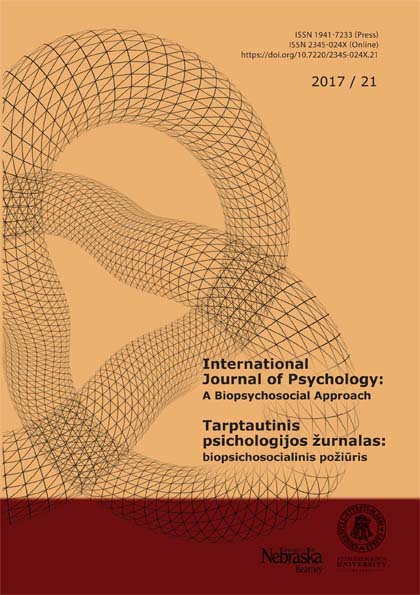Ar politinis aktyvumas skatina subjektyvią gerovę: ką rodo Europos socialinio tyrimo
duomenys
Does Political Activism Induce Subjective Wellbeing: Evidence from ESS Data
Author(s): Ligita ŠarkutėSubject(s): Politics / Political Sciences, Psychology, Political psychology
Published by: Vytauto Didžiojo Universitetas
Keywords: Political participation; Personal wellbeing; Social wellbeing; Happiness; Europe
Summary/Abstract: Background. There are quite a few studies about the connection between political activism and subjective wellbeing. The main problem is that most of such research has been done using student samples but not all the population. Purpose. The purpose of this study was to analyse the connection between political activism and subjective wellbeing using representative sample of the European population. The main research question is whether political activism is positively related to subjective wellbeing. Methods and data. This article is based on European Social Survey data of the 6th round, mainly on the data of the rotating module “Personal and Social Wellbeing” and core modules “Media and Social Trust” and “Politics”. Interviews were carried out with 54 673 respondents aged 15 and over in 29 European countries. The method of statistical data analysis was the correlation analysis of measures of political activism and measures of subjective wellbeing (Pearson’s r coefficient). Results. Results indicated statistically significant correlations between the indicators of political activism and dimensions of subjective wellbeing. Conclusions. Political activism induces subjective wellbeing and is a prerequisite to feeling good. All the indicators of subjective wellbeing correlated with at least two indicators of political activism. These correlations were mainly positive, with a few exceptions of unconventional political activism. The strongest positive and statistically significant correlations between the indicators of political activism are with items of community wellbeing and supportive relationships.Į
Journal: Tarptautinis psichologijos žurnalas: biopsichosocialinis požiūris
- Issue Year: 2017
- Issue No: 21
- Page Range: 29-56
- Page Count: 28
- Language: English

